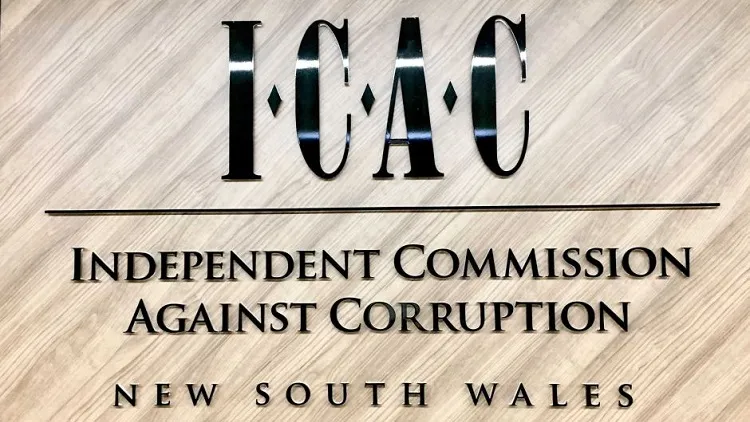
Kazal v Australia (HRC, 2023)
Violations: ICCPR art 17
 Partially remedied
Partially remedied
The UN says:
HRC (2023)[Australia] is under an obligation to provide the author with an effective remedy. This requires it to make full reparation to individuals whose Covenant rights have been violated. Accordingly, [Australia] is obligated to take appropriate steps to provide adequate compensation and reparation to the author for the violation suffered.
[Australia] is also under an obligation to take all steps necessary to prevent similar violations from occurring in the future.
In the course of ‘Operation Vesta,’ a 2010-11 investigation into allegations of corruption, the Independent Commission Against Corruption (ICAC) in the Australian state of New South Wales (NSW) concluded that Charif Kazal had engaged in corrupt conduct which could amount to criminal offences. The inquiry was held publicly and its findings made public.
The Commission determined there was insufficient admissible evidence to bring charges, but nonetheless referred the matter to the Department of Public Prosecutions, which drew the same conclusion: that there was insufficient evidence to prosecute.
The ICAC Act (1988) in force at the time provided no means to challenge a finding by the anti-corruption commission that did not proceed to trial.
ICAC is itself held to account by the independent ICAC Inspector who, in 2016 and again 2017, recommended reforms to the workings of ICAC, including that it should conduct investigations in private and introduce a means by which someone could seek exoneration. The Inspector was also “critical of the public nature of the proceedings [and] of the lack of a written record of the reasoning behind the decision to make the [Operation Vesta] proceedings public” (para. 4.5).
In 2016, NSW made significant reforms to ICAC, addressing “many of the concerns raised in the [Kazal] communication” (para. 4.13), but provided no individual remedy to Mr Kazal.
In August 2017, Mr Kazal complained to the Australia Human Rights Commission and petitioned the UN Human Rights Committee. He alleged breaches of his fair trial rights, including the right to be presumed innocent and the right to have a conviction reviewed by a higher tribunal (ICCPR art 14(1), (2) & (5)).
He also alleged violations of his right to privacy and the prohibition on unlawful attacks on his honour and reputation (art 17) owing to the public nature of the ICAC investigation and its findings.
Australia argued that article 14 fair trial rights did not apply, because Mr Kazal was not charged, tried or convicted in a court. It argued that, in any case, Mr Kazal did have a right of review, which he exercised in taking the matter to the Supreme Court (in 2012 and again in 2017).
Australia accepted criticism of how ICAC had originally been constituted, and informed the Committee of how it had reformed the NSW anti-corruption commission, and introduced a similar body at the national level.
Australia agreed Mr Kazal’s privacy and reputation had suffered, but maintained the interference was neither unlawful nor arbitrary (nor even constituted an ‘attack’ as per article 17), because it occurred within a legal framework in pursuit of a legitimate purpose (exposing and preventing corruption).
Mr Kazal countered that the decision to make the inquiry and its findings public did not serve a legitimate purpose, and therefore the interference was arbitrary (para. 5.5).
The Committee decided that Mr Kazal’s fair trial claims under article 14 were inadmissible because NSW ICAC is not a court (see dissenting opinions below).
However, it did find Mr Kazal had suffered arbitrary interference with his privacy, honour and reputation in breach of article 17: “the concept of arbitrariness is intended to guarantee that even interference provided for by law should be in accordance with the provisions, aims and objectives of the Covenant” (as per the Committee's General Comment No. 16) and should be reasonable, proportionate and necessary (para. 8.3).
ICAC’s decision – made without written reasoning – to hold its inquiry publicly and to make public its findings constituted an arbitrary interference in Mr Kazal’s right to privacy because it “did not fulfil a legitimate objective nor … meet the requirement of proportionality” (para. 8.4) or necessity (para. 8.5).
The UN Human Rights Committee called on Australia to compensate Mr Kazal.
A dissenting opinion by one Committee member questioned the Committee’s reasoning in ruling Mr Kazal’s article 14 claims inadmissible, yet relying on them to find a violation of article 17 (his privacy was violated because of a finding he could not challenge, para. 8.6), making a connection between the claims the author did not himself assert.
A second dissenting opinion by two Committee members points to increasing international efforts to prevent corruption spurred on by the widely ratified UN Convention Against Corruption (ratified by Australia in 2005), oftentimes by creating extra-judicial investigative bodies such as ICAC. General Comment No. 32 envisages that article 14’s due process protections could “cover other procedures” beyond courtroom trials, to be assessed on a case-by-case basis.
Australia's response
In its 2024 response to the Committee’s Final Views, Australia reiterated the steps it had taken to improve procedural fairness in the NSW ICAC, and to introduce a National Anti-Corruption Commission (NACC) in 2023. NACC hearings are held in closed session by default, unless “there are
exceptional circumstances justifying holding the hearing, or part of a hearing, in public and it is in the public interest to do so” (para. 9).
Australia disagreed with the HRC’s finding that it had violated Mr Kazal’s article 17 rights, arguing it was proportionate, necessary and in the public interest to make the Operation Vesta inquiry public. Australia appeared to offer new information, stating reasons for this decision had been published by ICAC in 2011, and asserting that Mr Kazal could have applied to have portions of the inquiry or evidence before the inquiry kept private, but did not (para. 15). Australia rejected the HRC’s recommendations regarding effective remedies.
Read the full decision: Kazal v Australia (July 2023)

NSW ICAC